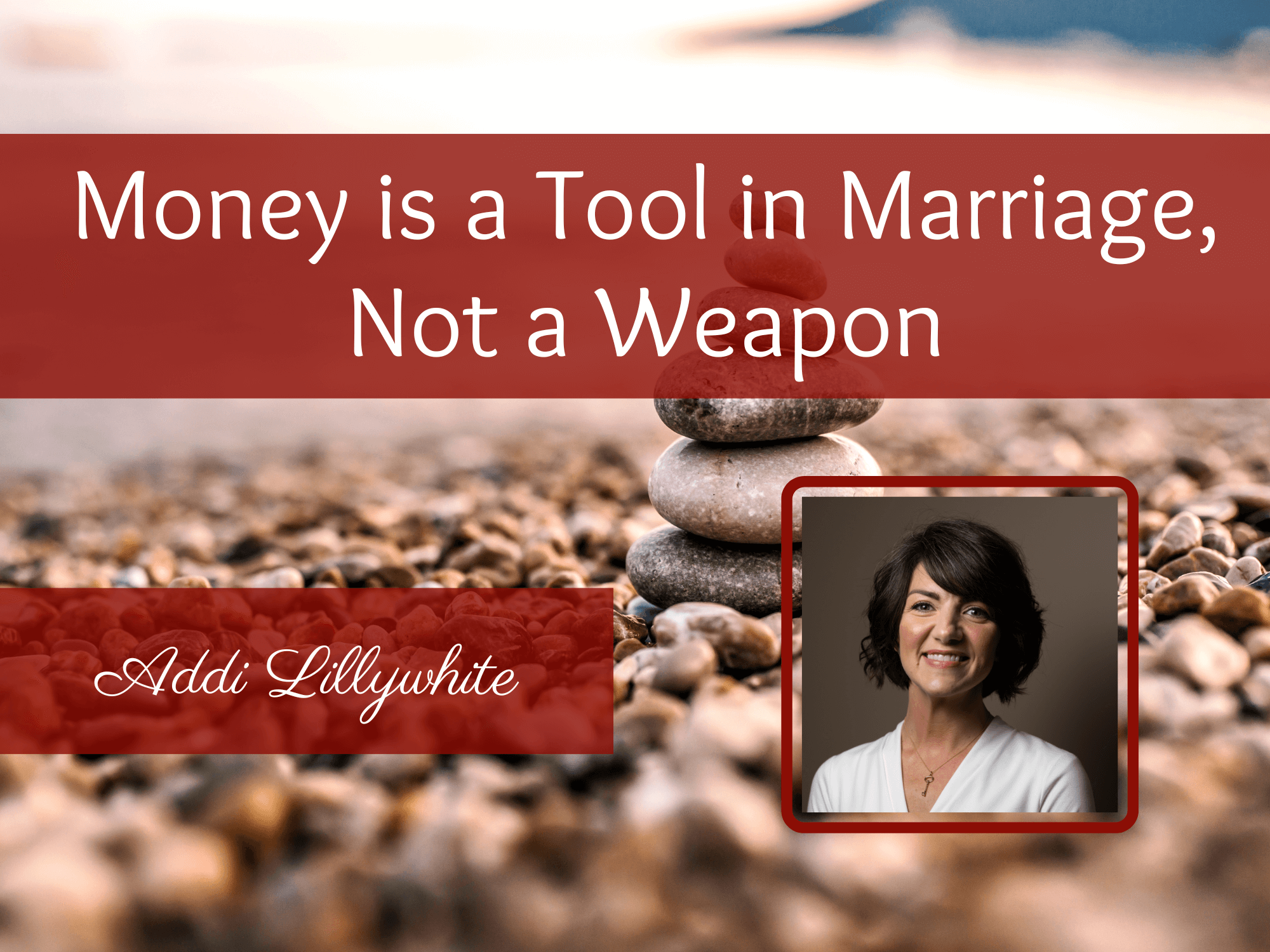Did you know financial conflict and arguments are the second leading cause of divorce? It’s no secret why. Finances are a complex topic, and there are an infinite number of thoughts and opinions about spending decisions, overcoming debt, and planning for the future.
This is a common issue we see in marriage counseling sessions and is a challenge nearly every couple faces at some point in their relationship. Couples overlook the value money can bring to shared life goals and instead focus on trying to “win” an argument. Learning to work together and understand one another can reduce financial conflict.
To learn more about how finances affect marriages, we talked to Addi Lillywhite, intern at Kenosis. She received her undergraduate in marriage and family studies and is currently working towards her master’s in marriage and family therapy. Addi has been married for 18 years, and her husband is a financial advisor, which gives her a unique perspective on this topic. She touches on the root cause of financial conflict and how to work with your partner instead of against them in disagreements.

The Flame of Financial Conflict
Most disagreements over money come down to one thing: are you a saver or a spender, and what is your partner? We often assume we know what our partner’s values and intentions are without taking the time to ask them questions like, “Why are you a saver or a spender? Where does that come from? Why is it so important to you?” Ask deeper questions to better understand your partner’s views on money so you’re on the same page about what you’re working towards.
Financial conflict can come up even in long-term relationships. Addi says, “There’s no real timeline for it. In the honeymoon stage, you’re going to be a little bit more forgiving and patient. Like, ‘I’m sure we’ll figure this out. I’m sure it’ll be okay.’ Maybe, in the beginning, you don’t have as much money. So the issues are different. But then as you get older and more financially secure, your financial questions and goals start to change.” As your relationship matures and financial situations change, check in with your partner. Discuss how or if your goals have evolved as your financial situation changes. It’s important not to avoid the conversation and wait until everything comes to a head and results in an argument.
But, we recognize that is easier said than done. Many times, couples don’t know how to overcome conflict together when it does come up. Addi comments, “I think a lot of people bury their heads in the sand and just say, ‘If I don’t address it, it’s not real.’”
Researching resolutions online can also be destructive, even though that’s a common starting point for couples in conflict. “[If you] look online, you’re usually looking for information that proves your point. We look for something that speaks to us because it’s what we already believe. It’s that underlying value that we already believe. I happen to believe that if we look for something on the internet, no matter what we’re looking for, we’re going to find it,” Addi says.
The same goes for seeking the advice of parents or friends. “I do think sometimes there does need to be a third party. But I think that when we reach out to our friends or parents, we’re going to find people who are very supportive of what we think.” Instead, seek the guidance of someone who isn’t emotionally involved in what you’re going through. It can help you view your situation with an open mind and see the big picture.

Money Aligns With Values
The decision-making process around finances is more about underlying values, and values don’t always align between partners. This is where conflict happens. Addi explains, “In therapy, the biggest thing we see is that they may not even recognize [conflict is] really about values. They believe they’re still fighting about money. They don’t always understand that they’re fighting about values, and so they don’t feel understood.”
We become blinded by trying to prove our partner wrong and make them agree to our side when we should be focused on understanding the values and how they are playing a role in this argument. Here is an analogy Addi uses with her clients to solidify this point:
“You feel like in that conflict, you’re in a race with one another, and you’re trying to reach the finish line, which is, ‘I’m right, you’re wrong. I win.’ Instead, when you’re married, you’re actually in a three-legged race. You’re not competing against anybody else. You’re just racing towards the finish line that isn’t right or wrong, but achieving the goals that you guys have developed together that you believe are going to create that shared meaning for your life and for your relationship.”
Viewing financial conflict this way can encourage you to put the armor down, so to speak, and intentionally listen to your partner. Addi always tells people that you’re fighting with a friend, not an enemy. “We forget that we’re talking with a person that we loved enough to marry and commit to. Then all of a sudden, we think we’re fighting against an enemy, and we’re not. We’re on the same team trying to develop our plan of attack, not on opposing forces trying to attack one another.”

Making Financial Decisions Together
Many people associate money with freedom and safety, which is why the conflict between partners can be so intense. It feels like your freedom is being stripped away. That’s why Addi believes conversations around finances need to be intentional.
“When you talk about it, plan to talk about it in advance. Have a date night where everybody’s feeling relaxed. Everybody’s feeling positive. It’s not a topic you want to take on after a long day of work. Be very intentional about how you talk with your partner about money, and let them know, ‘I’m not trying to fight against you. I’m trying to work with you. And no matter what happens, we will work together on this because I do want to understand you better and be able to make you feel comfortable, safe, and loved.’ I think that’s what we all want in the end,” says Addi.
When in conflict, focus on your strengths, but don’t forget to focus on your partner’s strengths as well. Sometimes we see their strengths as weaknesses because they differ from our own. As you work together, you can use one another’s strengths to set and achieve your goals. Addi advises, “Focus on what you have in common, and in creating that shared meaning for you, and what you hope to use that tool of money to accomplish. Then compromise on the details, which is also easier said than done. But none of that matters until you have that shared meaning. The easiest way to find your meaning is to focus on the strengths that you have individually and as a couple and not on your weaknesses and differences.”

Marriage is a partnership and should be treated as one. “People forget that they didn’t get married to do things their way. If you want to do things your way, the easiest way to do that is to stay single. If we focus on the strength in that power of two financially versus the power of one, we can look at [money] as a strength instead of a weakness or a challenge. Two people working together to achieve the same goal financially are going to be much more successful if they can figure out how to harness that power than somebody who’s trying to work on it on their own.”
Your partner is just that – your partner. Work with them instead of against them when it comes to financial decisions and challenges. You will have a deeper understanding of your significant other and avoid unnecessary financial conflict. Remember, money is a tool for achieving your marriage goals, not a weapon for tearing it apart

